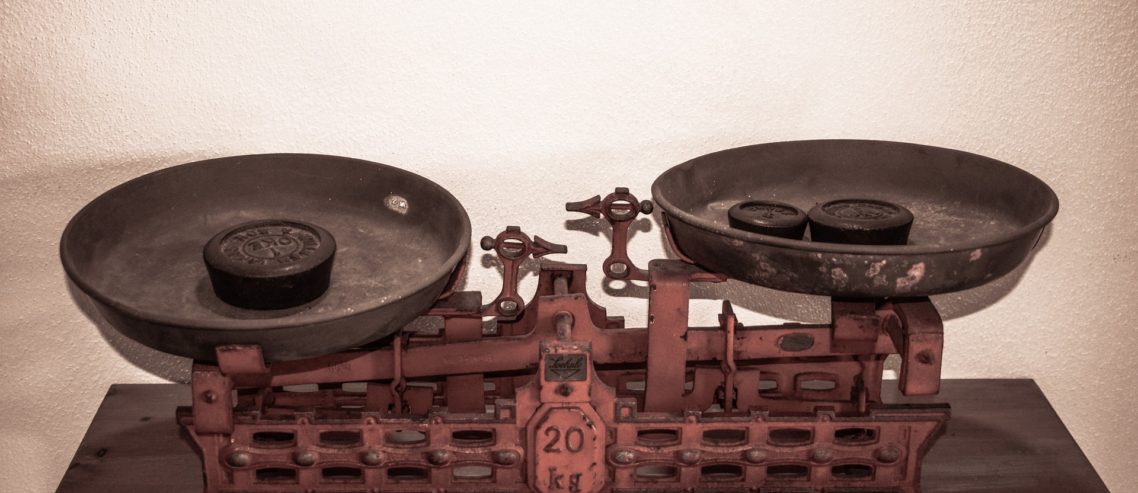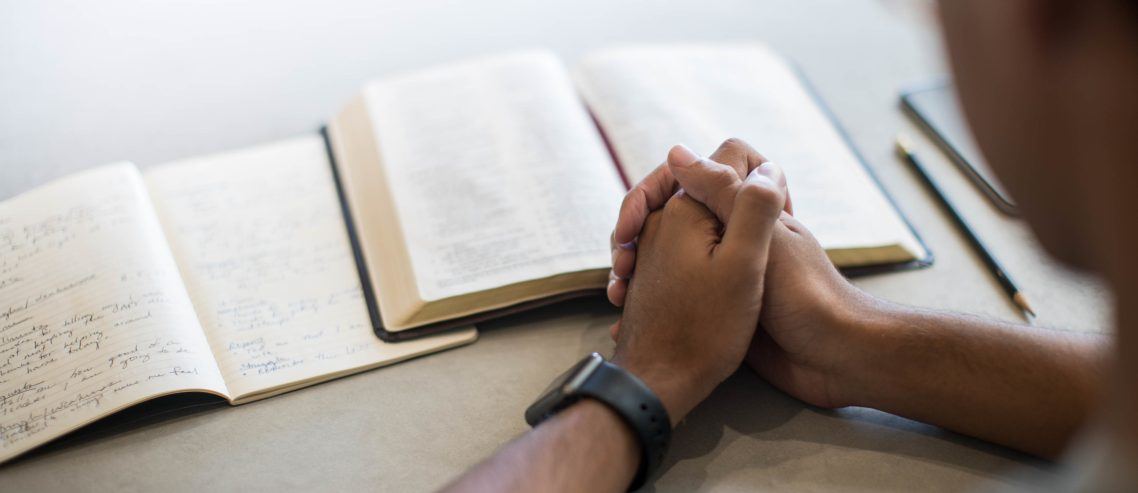The Story of Our Worth
What am I worth? This question lies just beneath the surface of our conscience. Money, purpose, influence and virtue are a few of the many metrics whereby we quantify our worth. We feel its applause when the balance of our worth tips to our favor. We feel its indictment when the balance tips to our shame. Fortunately, the worth we have in Christ settles the scale…in our favor. Our worth is in Christ. But how can this be? The story on how we have worth in Christ is worth telling. This article will strive to tell it in three short scenes.
We open the first scene with an old-fashioned balance scale. The type used by merchants in years gone by. After all, the term “worthy” as we read it in the Scriptures means “weighty”. Imagine buying and selling with the currency of precious metals – like gold. In order to make a purchase, you would have to supply the weight in gold that the purchase was worthy of. In this way, worth is established and quantified. Every object for sale has worth. That worth is determined by the purchasing price.
In this scene there is a buyer, there is a seller and there is that which is purchased. And there is the precious metal for exchange. As we watch merchandise being bought and sold there is a question worth pondering. The question is, who sets the purchasing price for the merchandise? At first blush, we think the seller does. After all, he is the one quoting the demands. But when we look closer, we see him adjust his prices. Adjustment according to what the market will bring. That is, what the buyer is willing to pay. The buyer ultimately sets the price of the merchandise.
The second scene opens with a song of worship you’ve never heard before. The setting is heaven. The singers are heavenly. The object of the song is Christ. The lyrics, “For thou wast slain, and hast redeemed us to God by thy blood…” (Rev 5:9). The word redeemed comes from the marketplace arena. Every time the buyer makes a purchase, they have supplied enough precious metal to redeem the object. To be redeemed is to be paid for. According to this heavenly song, the redeemed sing praises to Jesus for having purchased them. We see then that we are the objects purchased and Christ is the buyer. And the currency for purchasing power? That was the Savior’s blood. Peter says it this way, “Forasmuch as ye know that ye were not redeemed with corruptible things, as silver and gold… but with the precious blood of Christ…” (1 Peter 1:18-19).
The first scene taught us the buyer set the price for the purchase. Thus, the buyer determines the worth of the object they are buying. Jesus, therefore, has set our worth and it’s measured in his blood. We have worth in Christ, because of our worth to Christ. If the measure of our worth is the blood of Christ, then the question remaining is what is Christ’s blood worth? For this we look to our third scene.
Scene three opens with a thorough search. A search throughout all of heaven and earth. You see a book is in the hand of God and the book is sealed. A strong angel, with a loud voice, asks “who is worthy to open the book, and to loose the seals thereof?” (Rev 5:2) No man is found worthy. Strong Samson was not worthy enough. Wise Solomon was not worthy enough. Pure Joseph was not worthy enough. Even meek Moses was not worthy enough. Just when sadness becomes almost unbearable, in the midst of the throne “stood a Lamb as it had been slain.” (Rev 5:6) Jesus was found worthy to take the book and loose the seals. This marks the worth of the blood of Christ.
We see the story of our worth follows this thread: Because of the worth of Christ and our worth to Christ, we have worth in Christ.
There is one last observation we make in the merchant’s store. When the buyer purchases his merchandise from the seller, he takes it home and it becomes his. The story of our worth prompts us to respond. While the three scenes of the above stories of our worth are history, this ongoing interaction is playing itself out in the present. Through this lens we can understand the Gospel. The Christian is one who believes he has been purchased and his belief is played out in practice. He has yielded the possession of himself to the lover of his soul – the Purchaser.
Conclusions:
1. Unlike the self-worth found in other circumstances, worth in Christ is finished and settled.
2. In order to have a healthy self-worth, I need to have an exalted view of Christ.
3. Healthy self-worth reorients my view of others. After all, Christ gave his blood for them also.
To view complete PDF, click here.





Comments
Leave a Comment